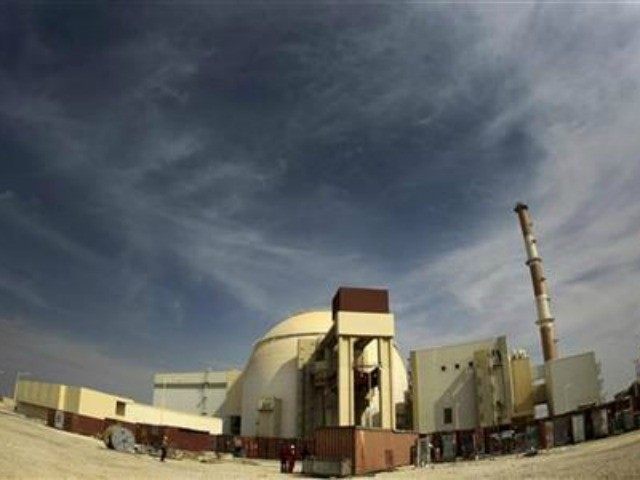President Obama and his administration have implied that Israeli Prime Minister Benjamin Netanyahu’s acceptance of an invitation to speak before Congress is a violation of protocol. Such a quibble to providing Netanyahu a platform distracts from a much greater problem many expect Netanyahu to address in his speech: a bad deal on Iranian nukes would be catastrophic to global security.
The outrage on the part of the White House towards Netanyahu in itself is nonsensical. Bibi’s speech before Congress in 2011 came about in the exact same way with no similar Obama outrage (given the upcoming 2012 election). And the New York Times advanced this “violated protocol” narrative all too willingly, only to correct itself as inconspicuously as possible, belying yet again an anti-Israel agenda.
Given that Netanyahu’s own campaign has fueled Obama administration criticism, it is ironic that Obama’s main, if not only, motivation for visiting Israel in 2008 (and promising policies far from those he eventually adopted) was to gain the support of Jewish-American voters, back when he needed them to win the presidency.
Whitehouse Spokesperson Josh Earnest’s inadvertent slip about hoping that Bibi gets voted out in Israel’s next elections was just the appetizer. The Obama administration will boycott Bibi on his next trip and is boosting the profile of his political opponents, as Obama-linked strategists actively support Israeli campaigns to unseat Bibi (after already slighting the democratically elected leader of America’s top Mideast ally on countless other occasions).
Worse still, Obama and many commentators have criticized Netanyahu for trying to influence Iranian nuclear negotiations, the outcome of which will decide whether Israeli may be compelled to use military force to protect itself, creating an absurd catch-22. If Bibi does nothing to prevent Obama from making Iran a threshold nuclear state, then he will be excoriated for any Israeli military attack undertaken to defang that threat; but if he speaks up now while a non-military solution is still possible (with adjustments to Obama’s disastrous negotiating strategy), then he is accused of meddling in U.S. politics and breaching protocol.
As the Washington Post pointed out, there are compelling reasons to question Obama’s Iran policy, which has been formulated by relatively inexperienced advisers and roundly critiqued by former secretaries of state and his own former adviser, veteran Mideast expert Dennis Ross, among other heavyweights. Nor is Netanyahu the only one with a stake in that strategy. Separation of powers improves governance precisely because overly concentrated power tends to corrupt and no single institution has a monopoly on wisdom. Congress has been involved in Iran-related decisions and sanctions for decades, so how could it be prudent or constitutional for Obama to circumvent Congress on this issue? And yet that is exactly what Obama is trying to do by unilaterally weakening sanctions and vowing to veto any bill requiring Congressional approval of his nuclear deal with Iran.
The result is an agreement in which Iran has a clear and concerning upper hand. The current deal reportedly allows Iranian uranium enrichment to continue with about 7,000 centrifuges and eventually ends inspections, leaving Iran as a threshold nuclear state. The day Tehran decides to go nuclear, terrorism itself becomes exponentially more lethal, and a wave of nuclear proliferation will spread across the Middle East. Iran’s rivals will seek to deter it with nukes of their own, making the world’s most dangerous and unstable region a nuclear powder keg, with Islamists like ISIS eager to grab whatever nuclear materials they can.
A bad deal also makes it that much harder for any state to take preemptive military action against Iran’s nukes and strengthens the very government that optimists naively think will change once the Iranian economy opens up with the lifting of sanctions. The Iranian regime’s survival will be extended by a double victory: improving the economy and keeping Iran’s nuclear program, which has broad nationalist support. The Ayatollahs will have nukes long before the world has a democratic Iran run by moderates.
No nation faces a greater threat from an emboldened nuclear Iran than its New Jersey-sized neighbor, Israel. The Iranian regime has repeatedly called for Israel’s destruction; just last month, Mohammad Ali Jafari, a top Iranian military leader, clearly stated that Iran’s goal is Israel’s annihilation. In case there was any doubt left about Iran’s intentions, it released this video simulating its nuclear attack on Israel. There is no margin for error on Iranian nukes because tiny Israel would be instantly destroyed after a first nuclear strike, which Iran has expressed rapt interest in. To allow Iran that opportunity, as the White House appears poised to do, would be to roll the dice with Israel’s survival.
Even if Israel’s survival were not a vital U.S. interest, how could entrusting the world’s leading terror sponsor with nukes possibly make the U.S. safer? Iranian President Hassan Rouhani was involved in Latin America’s bloodiest terror attack and presumably had some role in Iran’s recent terrorist activity in Uruguay. Iran has tried to assassinate U.S. diplomats in Azerbaijan and Saudi Arabia’s ambassador to Washington, not to mention countless other attacks from Europe to the Middle East (including the 1983 Beirut barracks bombing that killed over 240 Americans).
Never has a foreign leader’s Congressional address mattered so much to global security. Fortunately, most Americans want to hear Netanyahu’s speech, before it is too late to avoid much worse outcomes. Obama’s efforts to silence Bibi only exacerbate serious concerns about Obama’s strategy, competence, and intentions.
Noah Beck is the author of The Last Israelis, an apocalyptic novel about Iranian nukes and other geopolitical issues in the Middle East.

COMMENTS
Please let us know if you're having issues with commenting.